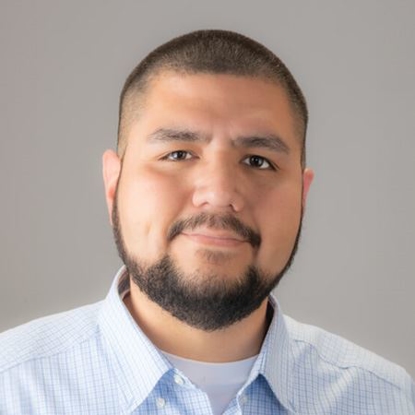

Working To Make Your Recovery Affordable By Accepting Most Insurances
Do not be discouraged if you are not seeing your insurance provider listed on our website. We take many types of insurance! Call Today: (844) 292-5010
-
 In-Network: BCBS
In-Network: BCBS -
 In-Network: Aetna
In-Network: Aetna -
 In-Network: Tricare
In-Network: Tricare -
 In-Network: Cigna
In-Network: Cigna -
 Proudly Caring for Veterans
Proudly Caring for Veterans -
 In-Network: Carelon
In-Network: Carelon -
 In-Network: MultiPlan
In-Network: MultiPlan -
 In-Network: HMC
In-Network: HMC
Prescription Drug Rehab in Arizona
Arizona Prescription Drug Addiction Treatment Center
Overcoming addiction to prescription medications is possible with the right help. At Decision Point Center, our Arizona prescription drug addiction treatment center offers a wide range range of inpatient and outpatient programs to help you overcome addiction in a holistic manner in a safe and non-judgmental environment.
We use respectful and communicative approaches to therapies and treatments. We never shame the people who come to us for help, but instead offer genuine care backed by professional knowledge and abilities. When you come to our addiction treatment center, we will take the time to design a recovery program based on your needs, not anyone else’s.
When coming up with a recovery program, we will want to review your:
- Psychological and psychiatric histories
- Medical records
- Family’s past with similar addictions
- Employment history
- Nutritional routines
Find out how we have been changing lives since 2004 by contacting us today.
On This Page:
- Prescription Drugs Can Be Just As Addictive as Illegal Drugs
- What Is Prescription Drug Misuse?
- Signs and Symptoms of Prescription Drug Addiction
- Treatments & Therapies for Prescription Drug Addiction
- How Common Is Prescription Medication Abuse?
- Helping a Loved One Addicted to Prescription Drugs
- Find Sobriety & The Future You Deserve
As frightful as illegal and “street level” substances may be, the truth is prescription drugs can often prove to be just as addictive and dangerous. Much of the opioid epidemic can be traced back to prescription drugs given to patients by medical providers who had not been properly warned of the addictive power of opiates and benzodiazepines. Now, thousands upon thousands of Americans are turning to drug rehabilitation centers to help them defeat prescription drug addiction and restart their lives on a better, brighter track.
Doctors prescribe medications for a variety of reasons, such as to relieve pain after a surgery or severe injury. While many prescription drugs are safe to use under a doctor's supervision and in strict accordance to their instructed use, over time many people find that they need more of the medication to achieve the same effect.
Some of the most commonly abused types of prescription drugs include:
- Opioid painkillers such as fentanyl, oxycodone, hydrocodone, and morphine
- Anti-depressant medications such as Zoloft and Prozac
- Sedative drugs like Ambien or Lunesta
- Benzodiazepines like Xanax and Valium
Prescription drug misuse, also called prescription drug abuse, is defined by the U.S. National Library of Medicine as the act of taking a medicine in a way that is different from what the doctor prescribed. This can take any of the following forms:
- Taking a medication prescribed for someone else
- Taking a larger dose of a medication than prescribed
- Taking medicine in a different way than prescribed, such as crushing tablets and then snorting or injecting them
- Using medication for another purpose than prescribed, such as for getting high
- Consuming prescription medication with other drugs or alcohol
Abusing prescription drugs can quickly lead to addiction, leading to health issues, damaged interpersonal relationships, issues with employment, or even death by overdose. If your or a loved one is struggling with prescription drug addiction, it is imperative you seek help from a licensed addiction treatment facility.
Here are some general short-term effects that are commonly associated with prescription drug misuse:
- Euphoria or Sedation: Many prescription drugs, such as opioids, benzodiazepines, and certain stimulants, can induce feelings of euphoria or extreme relaxation. This can result in a sense of pleasure or intense calmness.
- Drowsiness or Fatigue: Sedative medications, like benzodiazepines or certain opioids, can cause drowsiness, leading to fatigue and a decrease in alertness. This effect can impair a person's ability to operate machinery or drive safely.
- Confusion and Disorientation: Some prescription drugs can cause confusion, disorientation, or impaired cognitive function. This can affect decision-making abilities and general awareness.
- Nausea and Vomiting: Many prescription drugs can cause gastrointestinal disturbances, leading to symptoms like nausea, vomiting, or stomach upset.
- Respiratory Depression: Opioids, in particular, can significantly slow down breathing in high doses, which can be life-threatening.
- Increased Heart Rate or Blood Pressure: Stimulant medications, like certain types of ADHD medications, can increase heart rate and blood pressure, leading to potential cardiovascular issues.
- Mood Swings or Irritability: Some prescription drugs can cause rapid changes in mood or heightened irritability.
- Physical Coordination Impairment: Certain drugs can impair motor skills and coordination, leading to an increased risk of accidents or injuries.
- Addiction or Dependence: Even in the short term, prescription drug misuse can lead to the development of dependence or addiction, causing cravings and compulsive drug-seeking behavior.
Long-term prescription drug abuse can have severe and sometimes irreversible effects on both physical and mental health. The specific long-term effects can vary based on the type of drug abused, dosage, duration of abuse, individual factors, and whether the drug was used in combination with other substances.
Here are some general long-term effects associated with prescription drug abuse:
- Physical Health Issues: Chronic abuse of prescription drugs, particularly opioids, can lead to serious physical health problems such as respiratory issues, gastrointestinal problems, liver damage, and cardiovascular complications. Long-term use of certain medications can also weaken the immune system, making individuals more susceptible to infections.
- Tolerance and Dependence: Continued abuse of prescription drugs often leads to tolerance, requiring higher doses to achieve the same effects. Dependence can develop, causing withdrawal symptoms when the drug is not taken. This cycle of tolerance and dependence contributes to the risk of addiction.
- Mental Health Conditions: Prolonged abuse of prescription drugs can lead to or exacerbate mental health conditions like anxiety, depression, paranoia, and even psychosis in some cases. It can also impair cognitive functions such as memory, attention, and decision-making abilities.
- Social and Relationship Problems: Long-term drug abuse can strain relationships with family and friends, lead to isolation, and cause difficulties in professional or educational settings. Financial issues can arise due to the cost of acquiring prescription drugs illegally or spending on excessive amounts of medication.
Increased Risk of Overdose: With continued use and tolerance buildup, individuals may take higher doses of prescription drugs, increasing the risk of accidental overdose. Opioids, in particular, can depress the respiratory system to a dangerous extent, potentially leading to fatal consequences. - Physical Dependence and Withdrawal: Long-term abuse can result in a profound physical dependence on the drug, making it challenging to quit without experiencing severe withdrawal symptoms. Withdrawal from certain prescription drugs can be extremely uncomfortable and, in some cases, life-threatening.
Organ Damage and Systemic Health Issues: Chronic abuse of prescription drugs can damage various organs such as the liver, kidneys, heart, and brain. It can also contribute to systemic health issues like hormonal imbalances and compromised immune function. - Legal and Behavioral Consequences: Long-term prescription drug abuse can lead to legal issues due to illicit procurement or possession of controlled substances. It may also result in risky behaviors, increasing the likelihood of accidents, injuries, or engaging in criminal activities to obtain drugs.
Signs of a Prescription Drug Overdose
Recognizing the signs of a prescription drug overdose is crucial and can save lives. Overdose symptoms vary depending on the specific drug, but some common signs include:
- Slowed or irregular breathing
- Pinpoint pupils (constricted) or dilated pupils
- Unresponsiveness or unconsciousness
- Nausea and vomiting
- Confusion or disorientation
- Chest pain
- Seizures
If you suspect someone is experiencing a prescription drug overdose, call 911 immediately. Time is critical in these situations.
Personalized Treatment Plans for Prescription Drug Addiction
At Decision Point Center, we understand that each individual struggling with prescription drug addiction has unique needs and circumstances. That's why we offer personalized treatment plans tailored to address the specific challenges and goals of each client. Our team of experienced professionals will work closely with you to create a comprehensive and effective treatment program that addresses the physical, emotional, and psychological aspects of addiction.
Our prescription drug addiction treatment may include:
- Medically-supervised detoxification
- Individual and group therapy sessions
- Dual diagnosis treatment for co-occurring mental health disorders
- Holistic therapies such as yoga, meditation, and art therapy
- Aftercare planning and support for long-term recovery
If you or someone you know is struggling with prescription drug addiction, reach out to us today. Our compassionate team is here to help you take the first step towards sobriety and a healthier, happier future. today to learn more about our personalized treatment options.
One of the most difficult aspects of identifying prescription drug addiction is that every medication has different effects, making it difficult to spot certain common "tells." For example, a person addicted to opioid medications may exhibit symptoms such as nausea or impaired coordination, while a person addicted to sedatives may have slurred speech or dizziness. When combined with alcohol, these effects can be amplified or otherwise altered.
While the signs and symptoms of prescription drug misuse may be difficult to spot if you don't know what to look for, there are some behaviors that are common regardless of the specific medication involved:
- Stealing medications from other people
- Forging or selling prescriptions
- Major changes in sleep patterns
- Seeking prescriptions from multiple doctors, or "doctor shopping"
- Constantly "losing" prescriptions or needing more frequent refills
- Altered decision-making
Everyone is different and will need a different path to sobriety after becoming addicted to prescription medications. Our team of addiction treatment specialists at Decision Point Center has created a variety of therapies, treatments, and recovery programs to meet all sorts of needs. We are certain we will have something to help you stand on your own again.
A few of our more popular and proven-effective programs include:
- Residential inpatient treatment: A specialized program that integrates psychology, physical activity, nutritional health, and positive work and family relationships.
- Extended residential treatment: Furthered residential care for those who need it the most. New concepts are incorporated, such as learning about money management and interviewing skills for a stronger starting point after leaving our center.
- Cognitive behavioral therapy (CBT): A process of identifying specific negative thoughts and behaviors in order to remove or replace them with more positive connotations.
- Family therapy: Planning therapy sessions that include your family, who are likely your strongest source of support outside of Decision Point Center. Family therapy is not right for everyone, so we always want to discuss this option thoroughly with you before continuing.
There are few things as painful as seeing a son, daughter, parent, or other loved one struggle with an addiction. If someone you know has developed an addiction to a prescription medication, it is crucial that you speak up and urge them to get help as soon as possible. While it may be uncomfortable to approach them, letting them know about your concerns could potentially be the push they need to face their struggles and get sober. You could be saving their life.
If someone you know is in need of treatment for prescription drug addiction, here's how you can help:
- Do your research ahead of time and learn as much as you can about prescription drug addiction. This will help you better understand what they are going through and put you in a better position to empathize with their struggles.
- Be honest about your concerns, but make sure to come to them from a place of love and compassion, not judgment. Shaming them for their struggles may make things worse.
- Understand that they may not seek help after your first attempt to talk to them. Remain persistent and do not become discouraged. They may not fully realize the extent of their addiction, or they may outright deny that they have a problem at all.
- If they agree to seek treatment, stay involved in their recovery. They will need you the most during this time.
- If your loved one refuses to acknowledge an obvious addiction after being confronted multiple times, consider enlisting the help of an intervention professional.
Learn more about Decision Point Center and our Arizona prescription drug rehab program by taking a photo tour or contacting us now.
Prescription drug addiction can cause widespread and significant problems in your daily life and your health. Before things get out of hand and all the more dangerous, come to Decision Point Center in Prescott, Arizona for help, support, guidance, and care. We want you to find the strength you have inside to stop prescription drug addiction. Using our alumni support program, you can even continue to depend on us when you need us the most after your treatments at our center end.
According to data from the National Institute on Drug Abuse, an estimated 52 million Americans over the age of 12 have abused prescription medication at some point in their lives. According to a 2017 survey, an estimated 18 million people reported misusing medications at least once in the past year. Prescription drug misuse is most prevalent in young adults ages 18 to 25, with 14.4% of people in this age group reporting non-medical use of medications in the past year. With that being said, older adults are also at risk of developing an addiction to prescription medication as 80% of older patients ages 57 to 85 report using at least one prescription medication daily.
How long does prescription drug rehab last?
The length of treatment varies depending on individual needs and the severity of addiction. We offer various program lengths, from short-term to long-term residential treatment, as well as outpatient programs. Our team will work with you to determine the most appropriate length of stay.
Finding Help in Prescott, AZ
Decision Point Center is dedicated to providing compassionate and effective prescription drug rehabilitation services to individuals in Prescott, AZ, and the surrounding areas. We believe that recovery is possible, and we are here to support you every step of the way. Contact us today to learn more about our programs and take the first step toward a healthier, happier life.

Real Clients. Real Recoveries.
-
“Thank you for helping me navigate through one of the most difficult times in my life. I really attribute my experience while in your care to saving my life and career.”- Phil O.
-
“Doug and Wade really helped me and my loved ones through a tough time.”- J.C.
-
“Steve in admissions was extremely helpful for our family as we tried to choose a program recently.”- Paula A.
-
“Decision Point was different from the beginning. A team approach from professionals who care.”- Candace
-
“Thank you for helping me be a better person. Doug and Wade really helped me and my loved ones through a tough time.”- JD
-
“The moment I was in their hands, my transformation began. They actually cared. They actually WANTED to help me. I wasn't just another paycheck to them. They asked questions. They made a plan for me. And they followed it to the T.”- Amber B.
-
“THIS MAN MOVED MOUNTAINS to literally help save her!”- Corin C.
-
This facility deserves a special recognition. They have been around for years but the services they provide and the recovery that comes out of their facility, only seem to grow over the years. I have worked with Stephen from the admissions department and he has always gone above and beyond to make sure clients feel comfortable and get the care they need. I definitely recommend Decision Point Center!!!!- Ashley B.

We Understand You May Have Questions
Let Us Provide You With Answer
-
How Long Will I Be In Treatment?Because substance use is a chronic disease, completion of our program is based on your unique needs and progress, and not on a date. While our Residential Program is a good guidepost, treatment over a longer period may be prescribed if it’s warranted.
-
How Much One-On-One Individual Care Will I Get?Individual therapy at Decision Point is determined by the individual needs of each and every client. In combination with our group therapy, our client will have scheduled one-on-one sessions with our specialists. These sessions consist of Family Counseling, Trauma Therapy, Psychiatry, Career and Academic Counseling, or Nutrition Counseling. In addition to these individual sessions, our clients will have a primary therapist who will work with them individually and in a group setting.
-
What is the process to get someone into treatment?The first step is to reach out to our team, so we can help point you in the right direction. There are probably thousands of questions that you may have about addiction treatment, and we are here to help answer any questions.
-
Can I Afford Treatment?Thanks to insurance plans and financing options, more people than ever before are able to receive the treatment they need. When you call our Admissions Team, they will leave no stone unturned in finding ways for you to obtain treatment including setting up a payment plan that meets your needs. You can even verify your insurance coverage here.



Meet Our Dedicated Team
-
 Mary Ann Zuppardo Executive Director
Mary Ann Zuppardo Executive Director -
 Dr. Terry Vaughan Medical Director, Psychiatrist
Dr. Terry Vaughan Medical Director, Psychiatrist -
 Stephen Leza Director of Admissions & Business Development
Stephen Leza Director of Admissions & Business Development -
 Lindy Howard, MA, LPC Clinical Director
Lindy Howard, MA, LPC Clinical Director -
 Luke Bailey Director of Compliance
Luke Bailey Director of Compliance -
 Deborah Pallett, P.A. Physician Assistant
Deborah Pallett, P.A. Physician Assistant -
 Dr. Julia L. Summers, LPC DBT Therapist
Dr. Julia L. Summers, LPC DBT Therapist -
 Douglas Winter MS, LISAC, CSAT Primary Therapist
Douglas Winter MS, LISAC, CSAT Primary Therapist -
 Mark Branson, MA, LPC, NCC Trauma Therapist
Mark Branson, MA, LPC, NCC Trauma Therapist -
 Troy Trout Outdoor Activity Coordinator
Troy Trout Outdoor Activity Coordinator





















